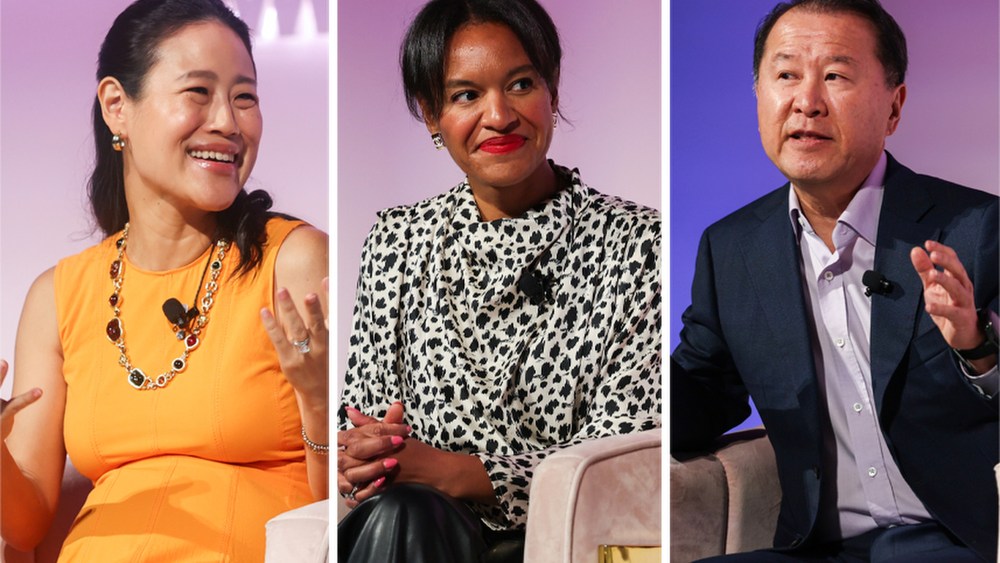As the global economy navigates through challenging times, leaders in the beauty industry are recalibrating their strategies to stay afloat in a shifting business environment. During the 2025 Beauty CEO Summit, key insights emerged from a discussion led by WWD’s deputy managing editor Evan Clark. Notable speakers included Mandy Fields, CFO of E.l.f. Beauty; Alicia Yoon, founder and CEO of Peach & Lily; and David Chung, founder and CEO of iLabs. Each shared their unique approaches and reflections on how to adapt to current economic pressures while maintaining core brand identities.
Mandy Fields shed light on E.l.f.’s focus on affordability, expressing that consumers are increasingly selective about their spending. In uncertain economic climates, price-conscious customers prioritize value and intentional purchasing. Fields emphasized the importance of controlling various factors within their operation to align with consumer expectations. This approach not only nurtures customer relationships but also empowers the brand to thrive amidst challenges.
Alicia Yoon provided insights into the tangible effects of global tariffs impacting the beauty sector. Operating Peach & Lily, the second-largest prestige skincare brand at Ulta Beauty, Yoon discussed the complexity added by bureaucratic hurdles, leading to longer shipping times and increased costs. These tariffs have forced brands to acknowledge previously overlooked inefficiencies in their supply chains. Yoon emphasized a proactive approach, collaborating with suppliers to mitigate tariff impacts and reassessing internal processes for greater efficiency.
David Chung highlighted the challenges faced by manufacturers due to shifting economic policies. Since the announcement of global tariffs, he noted a rise in brands seeking to import ready-made products into the U.S., along with an increasing demand to reroute manufacturing processes domestically. Such transitions are not straightforward; they require meticulous planning around raw materials and production methods. Chung pointed out that while adjustments can lead to potential savings, they demand substantial investments of time and resources.
Navigating these complexities calls for brands to maintain a delicate balance between adaptation and core values. Alicia Yoon described the necessity of establishing “bright lines”—non-negotiable standards that define a brand’s integrity. For example, Peach & Lily chooses not to compromise on ingredient quality in pursuit of cost savings, recognizing that even small changes can significantly impact product efficacy and brand reputation. This approach demonstrates a commitment to quality that is crucial in retaining consumer trust.
Meanwhile, E.l.f. Beauty is capitalizing on the need for value, showcasing products that deliver multiple benefits at an affordable price point. Fields discussed her brand’s “Many-Trick Pony” campaign, which highlights versatile products like their Halo Glow Liquid Filter. By responding to consumer preferences and celebrating the joy that beauty can bring, E.l.f. fosters a sense of community while driving sales. This focus on engagement reinforces the brand’s popularity and aligns with customer aspirations.
In conclusion, the beauty industry is at a crossroads, driven by economic uncertainties that challenge traditional business models. Leaders like Fields, Yoon, and Chung are not only addressing immediate concerns but also shaping a resilient future. Their discussions illuminate the importance of agility, consumer focus, and unwavering commitment to quality. By embracing innovation while honoring core values, beauty brands can navigate their paths forward, ensuring they continue to resonate with consumers in an ever-evolving marketplace.

